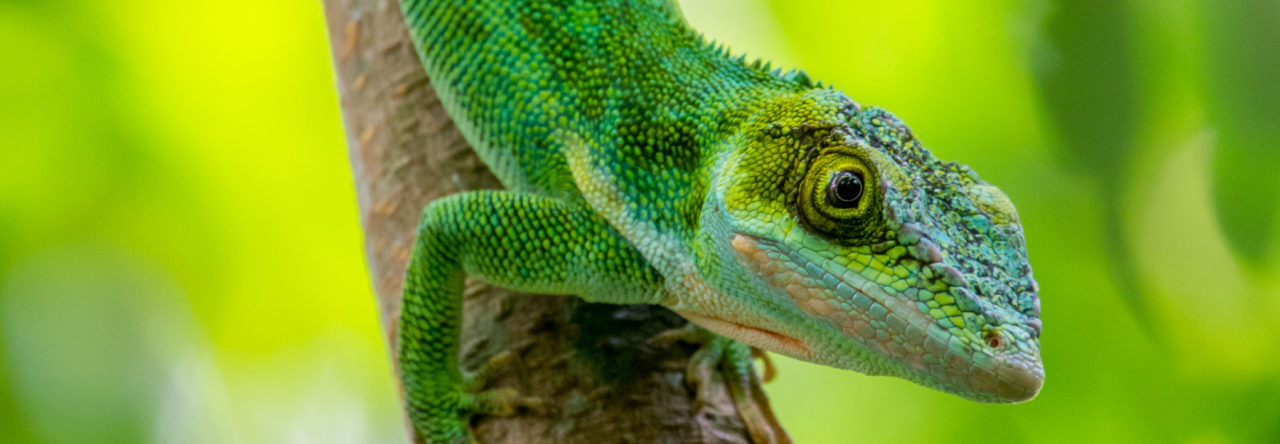For most of the history of life on earth, the only sources of light at night were the moon and stars. Yet with the invention and rapid spread of electric light, species around the world now face a novel evolutionary pressure: artificial light at night, or ALAN. Artificial light likely has an especially strong effect on animals in city habitats, such as the urban-adapted brown anole lizard, Anolis sagrei. Chris Thawley and Jason Kolbe at the University of Rhode Island set out to determine whether brown anoles were negatively impacted by ALAN.
In addition to their abundance in urban environments, brown anoles are a particularly good species for this study. Previous studies of brown anoles have shown that photoperiod influences the onset of reproduction at the beginning of the breeding season, and that several behavioral traits change under artificial light. In addition, work by Moore and Menaker has shown that pineal production of melatonin in this species is significantly altered by photoperiod. So, would ALAN influence brown anole growth and reproduction?
Chris and Jason collected lizards from south Florida and set up a lab experiment where some lizards experienced a normal photoperiod, and others were exposed to ALAN that mimicked landscape lighting. Their results were quite unexpected! ALAN actually increased female growth, resulted in eggs laid earlier in the season, and increased the reproductive output of small females – but did not affect the number or mass of eggs or hatchlings. And, ALAN females did not exhibit more stress (measured via circulating corticosterone) than control females.
So are brown anoles just superlizards? Do they have no trade-offs that result from ALAN? Chris suggested that it’s possible that such trade-offs may appear in studies over a longer time period, or in traits not measured here. Or, perhaps ad libitum food and the absence of predators in the lab remove the costs of ALAN. Or, maybe these really are indefatigable lizards!
- Brown Anoles in Montgomery County, Texas - October 5, 2019
- Green Anoles in Pennsylvania?! - January 21, 2018
- SICB 2018: Evo-Devo of Anole Digits - January 16, 2018



Leave a Reply